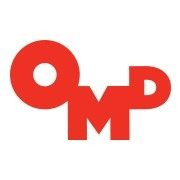As the global health crisis continues to wreak havoc on businesses of all kinds, large and small, industry leaders are battling to adjust to a vastly changed marketplace. There’s no question that the challenges they’re facing are unprecedented, and there’s also no question that they are facing them head on.
From rethinking how their employees work to finding smart, creative ways to deliver for their clients—and their employees—despite a climate of fear and uncertainty, they are showing a way forward.
As a member of Adweek’s Advisory Board, Florian Adamski joined leading figures from across marketing and media in sharing their insights.
Read the full feature on Adweek.
Florian Adamski
CEO, OMD Worldwide, Adweek Advisory Board
How is this crisis similar to events like 9/11, superstorm Sandy, the 2008 recession, for example, and how is it different?
Similar in that it is a black swan, unpredictable and sending shockwaves through the ecosystem. Different from 9/11 and Sandy in that those were very severe but singular events. People, governments and industries had to cope, but the damage done was visible and somewhat more tangible to deal with. 2008 recession is more alike: It had more of a long-term and less predictable effect. That said, it had more of a “technical cause,” which meant certain tools could be used to fix it over time. C-19 is much more of a test-and-learn situation, bearing more uncertainty and demanding almost hourly adjustments.
In what ways has the pandemic affected your business—in terms of clients, events, the workplace, etc.?
Pivoted to a WFH policy. Started shifting from physical to virtual meeting about six weeks ago. Restricted travel policy. Every day, stand-up session with clients and teams to review business continuity plans. Daily adjustment of client spend levels and message mix. Constant exchange with local authorities. Some campaign activities paused; others shifted between channels.
What short-term measures have you put in place to keep your business running?
At the day-to day level, OMD has put a communications process in place rooted in the belief that during times like this, it’s best to err on the side of over-communicating. This process includes a daily “morning all-team huddle” (video conference) hosted by the client lead in which all team members join a video conference to review client priorities, provide updates on projects and discuss any new activities or deliverables; “late-afternoon daily roundups” (video conference or conference call), which are 15-minute meetings used by client leaders to spot-check progress on priority items, or any issues or obstacles that need to be escalated, as well as any staff-related outages; “Sunday check-ins,” wherein OMD leadership connects with client leads for a 360 assessment; and weekly HR check-in by client leads.
What changes will you need to make long term?
Our business has become much more agile over the past decade. That is true for the way we respond to changing client needs, assessing and acting on consumer trends and staying attractive for our workforce. There will be the need to allow for even more fluidity. A lot of it will be enabled by advanced technology (campaign buys/adjustments), communication tools (collaboration software, real-time changes) and clear processes defining roles and responsibilities more specifically than ever. But it will also be about preparing our workforce for a new age of constant disruption and fluid transformation.
So far, what have been your C-19 challenges and success stories?
Constant and frequent adjustments to channel, message mix. Pulling or activating campaigns at an hour’s notice. Real-time significant updates of blacklists for digital buys. A lot of additional inventory with increased media consumption, theoretically driving down cost per unit, but a lot of the additional reach was not usable as it was not deemed brand appropriate.
What advice do you have for others in the industry?
Establish a constant feedback loop with your teams and clients. Be totally transparent with all constituencies (no one has all the answers, but saying so makes it easier to deal with that fact as opposed to creating a vacuum that different people will interpret very differently). Be prepared to go at full throttle the moment the tide turns. Everything will happen at light speed to compensate for any slowdowns experienced. It will be a game of who can catch up quickest.
Additional executive interviews from the feature can be accessed via this link.
